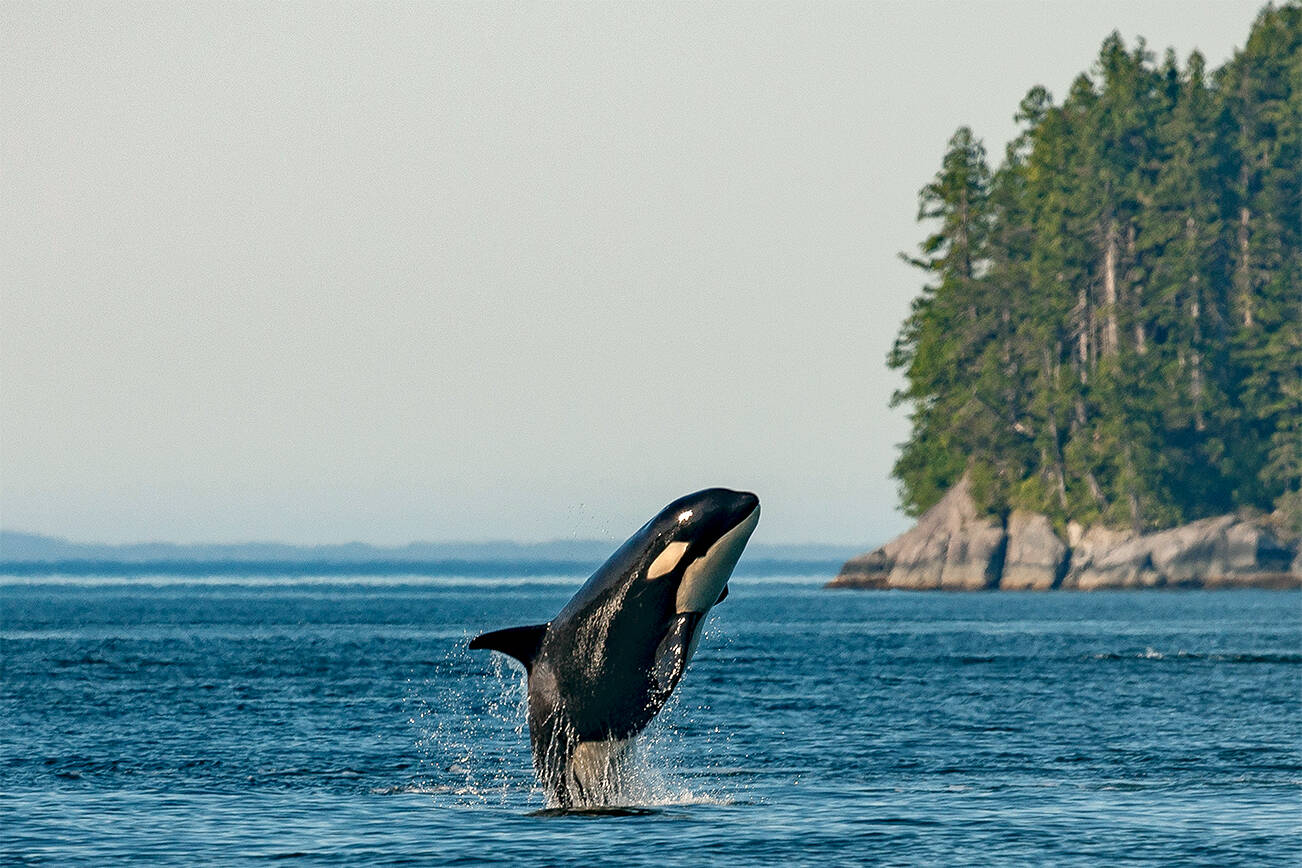As of Monday, the city of Langley joins two other municipalities in the state in recognizing the inherent rights of the southern resident orcas.
The city council approved a proclamation, with some amendments, that follows in the footsteps of Port Townsend’s and Gig Harbor’s. Rights of the orcas listed in the proclamation include “life, autonomy, culture, free and safe passage, adequate food supply from naturally occurring sources, and freedom from conditions causing physical, emotional, or mental harm, including a habitat degraded by noise, pollution and contamination.”
Councilmember Gail Fleming led the charge in making environmental history, bringing the proclamation before her fellow council members for discussion.
Councilmember Rhonda Salerno suggested personalizing the proclamation by referencing the Langley Whale Center, Whale Bell Park and the city’s annual “Welcome the Whales” parade and festival.
Councilmember Craig Cyr recommended amending a portion of the proclamation that mentions a resolution passed by the Affiliated Tribes of Northwest Indians of the United States in 2018. He said they referred to the sentient beings as Blackfish, not orcas, in their resolution.
“We, as non-indigenous peoples, don’t want to continue to use our language and misrepresent history,” he said.
Several members of the public, from Whidbey Island and beyond, expressed their gratitude to the council for considering the proclamation.
Kriss Kevorkian from Gig Harbor, founder of Legal Rights for the Salish Sea, brought the proclamation to the council’s attention.
“They’re in our backyard, and so many people just take them so much for granted,” she said of the southern residents. “We hear from people from all over the world, asking and begging us to save them because they come here, they fly zillions of miles to come and see the southern residents.”
Heather Nicholson from San Juan Island read a quote from the late Ken Balcomb, who spent 45 years researching the southern residents and passed away Dec. 15.
“For us to be able to live on this planet with those amazing creatures, it’s a gift,” she read. “And we’re killing the gift.”
The southern resident orca population has diminished over the years, with just 73 left in the wild. Unlike transient orcas, the southern residents do not eat other mammals and stick to a diet of fish.
Representatives from the Orca Network, Katie Watkins and Cindy Hansen, also spoke during the council meeting. Hansen pointed out that the proclamation is a great way to honor Balcomb, who is the brother of Howard Garrett, co-founder of the Orca Network.
“It’s largely because of his work that we’re even having this conversation,” Hansen said. “He introduced us to these whales as individuals with families and unique personalities and he spent most of his life fighting to protect and recover them.”
Hansen added that there is a cultural shift happening right now in the way that people think about these animals and their rights to exist in a healthy habitat.
Langley’s proclamation, which was unanimously approved, comes at a time when new developments are on the rise for the most famous of the southern resident orcas. Lolita, also known as Tokitae and Sk’aliCh’elh-tenaut, may finally be coming home to the Pacific Northwest. Since 1970, the captured orca has resided at the Miami Seaquarium, where she was forced to perform until her retirement earlier this year.
According to the Miami News Times, Miami Seaquarium’s new owner, Eduardo Albor, said earlier this month that he is “100% committed” to efforts to bring her home.



